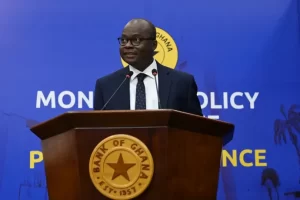INTERPOL team in Brazil to support security measures during Rio Olympics

An INTERPOL Major Events Support Team (IMEST), including counter-terrorism experts, has been deployed to Brazil to assist with security measures during the Rio Olympic and Paralympic Games.
In addition to the nearly 11,000 athletes, some 500,000 tourists will be among the six million ticket holders attending events in Rio de Janeiro as Brazil rolls out the largest international police cooperation event in its history.
Based in the International Police Cooperation Centre (IPCC) in Brasilia, the IMEST not only has instant, direct access to INTERPOL’s full array of databases but will also be able to exchange urgent messages and vital police data from all 190 member countries such as fingerprints, images and wanted persons notices.
Working alongside some 255 police officers from 55 countries, the IMEST will facilitate checks on individuals against INTERPOL’s global databases including fingerprints, internationally wanted persons and DNA in addition to data on more than 7,700 foreign terrorist fighters.
With the potential for criminals attempting to enter Brazil using falsified, stolen or lost passports to conceal their identity, officials at land, sea and airports throughout the country have access to some 60 million documents in INTERPOL’s Stolen and Lost Travel Documents (SLTD) database to perform instant checks of visitors’ passports.
As part of the ongoing security network put in place for the games, Brazil is conducting an average of one million checks against INTERPOL’s databases for SLTD and wanted persons every day, making it one of the highest users in the world.
“Security at an event such as this is a global responsibility requiring close cooperation between law enforcement entities worldwide,” said Andrei Rodrigues, Secretary for major events at the Brazilian Ministry of Justice.
“Because INTERPOL is the only police organization that provides access to criminal data from 190 countries, Brazil has made sure that its global databases and specialized teams are an integral part of the security arrangements for the Olympic Games,” added Mr Rodrigues.
INTERPOL Secretary General Jürgen Stock said Brazilian authorities had clearly devoted a significant amount of resources in making the Games secure.
“Through INTERPOL’s global network, the Brazilian authorities have extended their national security perimeter far beyond their own border,” said Secretary General Stock.
“No one can predict from where the next crime or terror threat will emerge, which is why a global reach is essential.
“Although there is no specific security threat to the Rio Games, vigilance and preparedness are essential and INTERPOL is committed to doing its part in supporting Brazil deliver a safe and secure event for both competitors and spectators,” said Mr Stock.
Throughout the Olympic and Paralympic Games INTERPOL’s 24-hour Command and Coordination Centre, and other specialized units, will be on standby to provide any additional assistance required to reach out to its 190 member countries in urgent situations, or in relation to organized crime issues such as human trafficking.
Brazil played a central role in the recent INTERPOL-coordinated Operation Intercops – Spartacus III which resulted in the rescue of more than 2,700 human trafficking victims from across South and Central America.
Ahead of the Olympic Games, INTERPOL has also assisted Brazilian authorities address other crime issues linked to major sporting events, through the provision of training and investigative support in illegal betting and match-fixing prevention.
Experts from INTERPOL’s Project Stadia – established in 2012 to create a centre of excellence and good practice platform to help member countries plan and execute physical security and cybersecurity preparations for major sporting events – will also be in Rio during the Games.
With Brazil having participated in several Project Stadia workshops, the 2016 Olympics will provide valuable information about the development and delivery of policing and security arrangements since the country hosted the 2014 FIFA World Cup.
Funded by Qatar, Project Stadia also conducts observation and debriefing programmes with security officials from both the public and private sectors and is developing a state-of-the-art web-based knowledge management system which all member countries can contribute to and benefit from.







